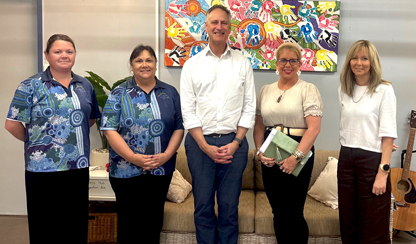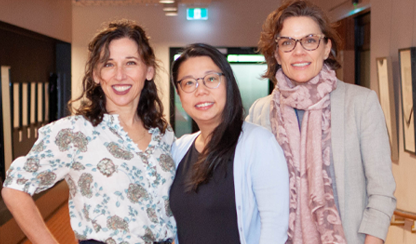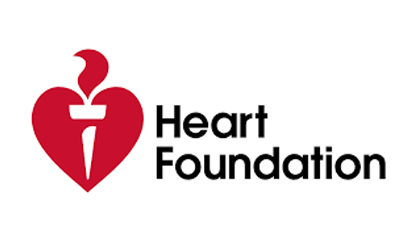30 October 2025
Institute news
Four Baker Institute researchers have been recognised at Alfred Health Research Week for their groundbreaking work in diabetes and heart disease.
The annual event showcases research excellence across the Alfred Research Alliance.
Dr Keith Al-Hasani
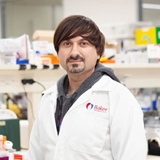
Regenerating insulin production (Alfred Health Alliance Publication Prize for Basic Research)
Dr Keith Al-Hasani received the award for research with the highest impact factor for work on regenerating insulin production. This research focuses on enabling pancreatic progenitor cells to become insulin-producing cells for people with diabetes. Using EZH2 inhibitors — drugs already approved for clinical use — Keith and his colleagues have shown that diseased pancreatic tissue can begin regenerating insulin within just 48 hours. They aim to create a reliable source of functional insulin-producing cells to advance future cell therapies for diabetes.
Dr Cheng Soh
 Dr Cheng Hwee Soh took home two prizes at the Alfred Research Alliance Scientific Abstract Competition.
Dr Cheng Hwee Soh took home two prizes at the Alfred Research Alliance Scientific Abstract Competition.
Smarter heart monitoring through artificial intelligence
Dr Cheng Hwee Soh won the Baker Institute award for his team’s research into a new, smarter type of electrocardiogram (ECG) that uses machine learning to better detect early signs of heart weakness in people with type 2 diabetes. The findings suggest artificial intelligence could transform routine ECGs into powerful early-warning tools — offering a simple, low-cost way to better spot early signs of heart failure before symptoms appear.
How reliable are cardiovascular risk calculators?
Cheng also won the Noel and Imelda Foster Prize for a study exploring whether common cardiovascular risk calculators can help identify people who have early signs of heart disease seen on heart scans. Cheng and his colleagues studied over 1000 healthy adults with a family history of heart disease, measuring their risk using several standard tools and advanced CT imaging to look for plaque build-up in the arteries. They found that their risk scores could not reliably reflect how much plaque was already present. This suggests that current cardiovascular risk calculators may not be accurate enough to decide who should get advanced heart imaging, but some may still provide clues about future plaque progression.
Dr Joanna Gong
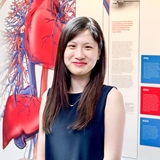 Global insights into cardiovascular disease mortality for people with diabetes (Alfred Research Alliance Scientific Abstract Competition prize)
Global insights into cardiovascular disease mortality for people with diabetes (Alfred Research Alliance Scientific Abstract Competition prize)
Dr Joanna Gong presented the results of the first multi-country analysis of trends in mortality due to coronary heart disease, cerebrovascular disease and heart failure in people with and without diabetes.
Examining data from nine high-income locations between 2000 and 2023 — covering 2.92 million deaths — the research found that while deaths from coronary heart disease have fallen for people with diabetes, progress in reducing heart failure deaths has been much slower.
In Ontario, Canada, heart failure deaths actually increased during this period. The findings highlight an urgent need to improve heart failure prevention and treatment for people living with diabetes and will soon be published in the Lancet Diabetes and Endocrinology.
Haoyun Fang
 Mapping biomolecules of the heart (Alfred Research Alliance Scientific Abstract Competition prize)
Mapping biomolecules of the heart (Alfred Research Alliance Scientific Abstract Competition prize)
Haoyun Alexandra Fang and her team have constructed a high-resolution biomolecular map of the mouse heart, capturing over 7000 proteins and 600 lipids across distinct subcellular regions. The team revealed how cardiac proteins and lipids are organised and functionally connected. This map enriches current understanding of protein–lipid networks, cellular signalling, and energy metabolism in the heart. It also highlights sex-dependent differences, providing a valuable framework for studying cardiac biology and guiding future research in untangling high-dimensional data in heart research.


